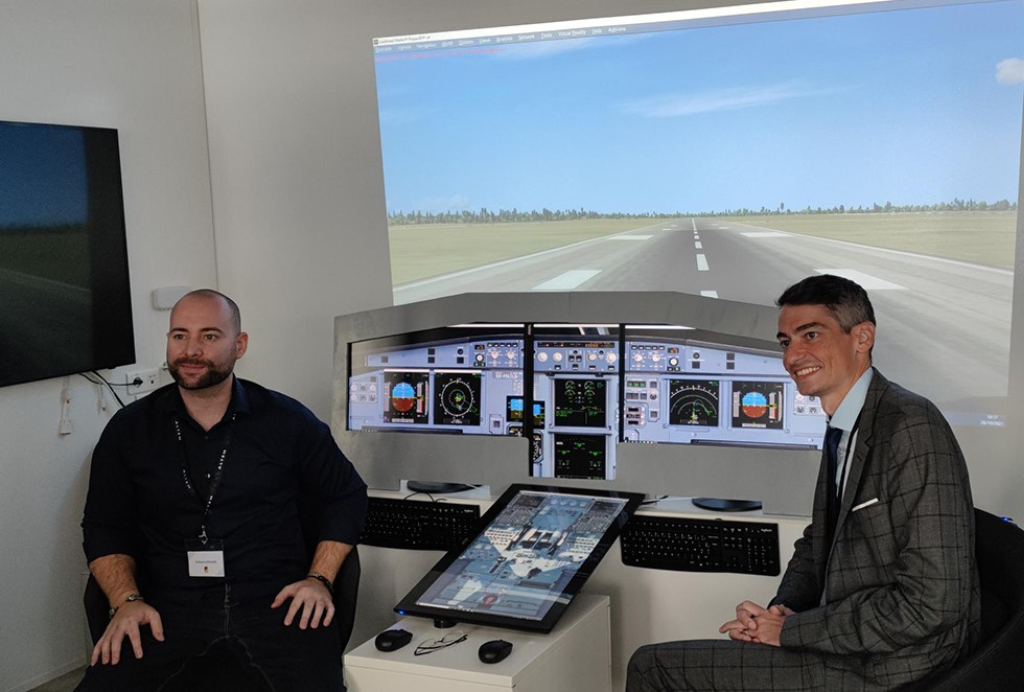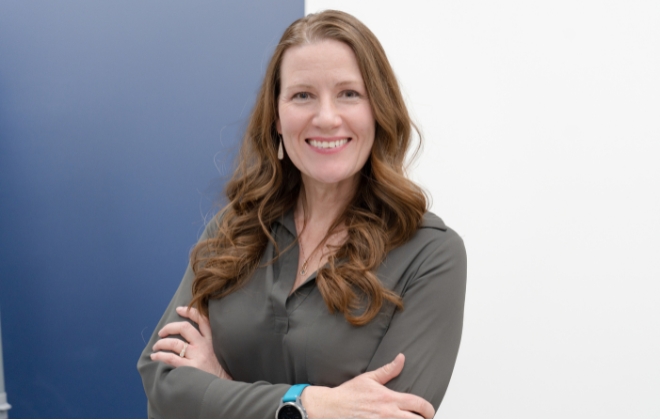Air traffic growth combined with the development of new technologies means that the cockpit environment must constantly evolve to provide pilots with new features. Existing simulators for the validation of new cockpit features cover a wide range of needs, as a result of which they are over-stretched and very costly.
However, some features could be tested in advance. Drawing on this, ALTEN developed in 2016 its own prototyping tool: FAST. What if new HMIs were pre-validated without going through a simulator?
As presented in our previous article, FAST is a simple, flexible tool dedicated to the pre-validation of new human-machine interfaces (HMI) with no need for a traditional simulator.
“The idea was to rapidly agree on various cockpit HMI proposals with pilots”, Guillaume Discours, ALTEN’s Cockpit Operations Project Manager.
Discover FAST in 3 minutes, pitched by its teams:
An open environment compatible with the “new world”
Already overloaded in normal times, the existing simulators have been even more so since the pandemic for two major reasons: shifted schedules and very strict health restrictions limiting the number of people in a simulator to four. As a result, there is a greater loss of information and especially pilot feedback during discussions in a configuration like this. From this situation, FAST has done well in three areas:
- This is a more open environment than a cockpit because the platform does not include a closed structure: more users can participate in sessions and discuss HMI pre-validation.
- FAST includes various means of support, and the teams have managed to adapt it to remote control with videoconferencing software. Today, thanks to a tool like FAST developed by the ALTEN teams, it is, therefore, possible to organise HMI pre-validations without seeing each other, a feature already proven with pilots during the various lockdowns.
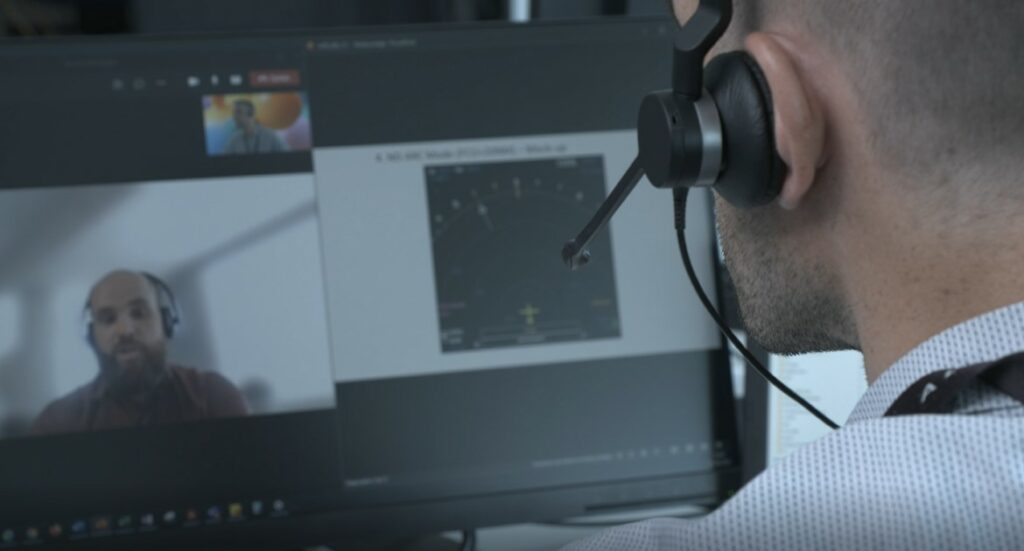
- Traditional, overbooked platforms no longer allow new employees of major aeronautical industrial groups to be introduced to the cockpit interfaces. With FAST, the possibility of supporting these newcomers in their orientation becomes feasible once again.
“Keep it simple” as a guiding principle
Beyond the simplicity of its physical and technical deployment, FAST demonstrates its qualities of flexibility and accessibility day after day.
Its accessibility stems from the geographical proximity of the ALTEN offices where the FAST platform is located with the engineering departments of major customers in the aeronautics sector: It takes just five minutes to go from one building to another and interact! FAST can also be made available to customer teams to allow them to work directly on the tool independently after an initial training phase provided by ALTEN. On top of that: improvement of skills and enhanced collaboration between teams.
As for flexibility, the ALTEN teams know how to adapt FAST and its equipment on the prototyping component to various aircraft configurations, completely independent, according to customers’ needs. Below are two examples of distinct cockpit environments:
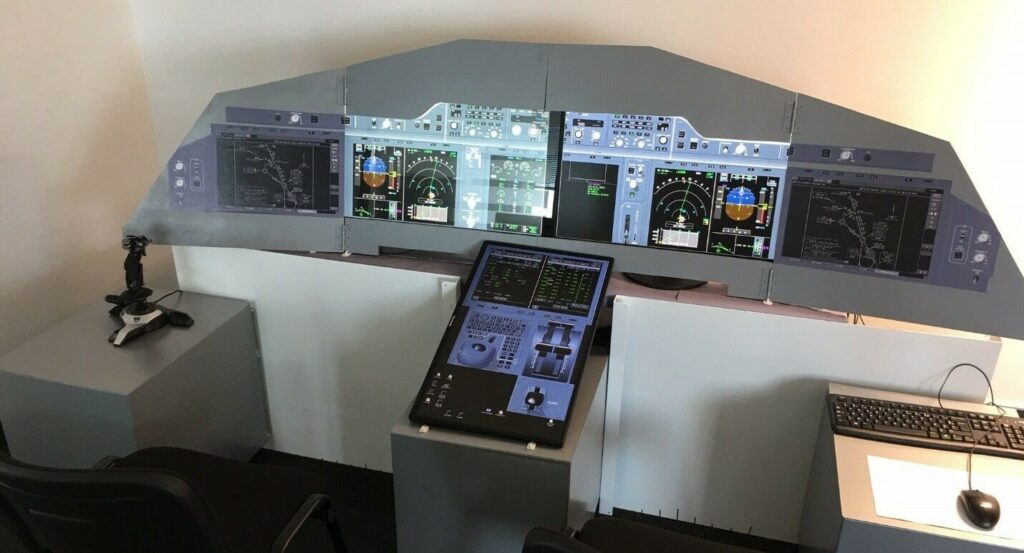
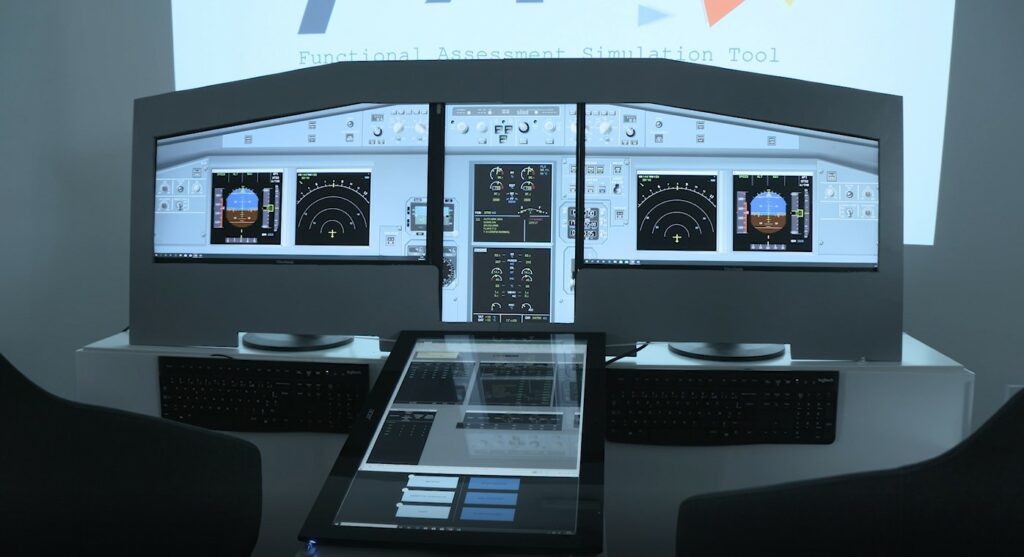
A tested, approved training offer
To promote the improvement of practical skills of its customer’s engineering teams on cockpit interfaces, ALTEN has set up a training programme around FAST. ALTEN’s training solution, focused on the use of a flight simulator consisting of a cockpit interface and all the components of the FAST platform (two screens, one touch screen, one video projector, and one sidestick) responds to various challenges and objectives:
- Aircraft development life cycle
- Design of the cockpit system
- Understanding of flight procedures
- Introduction to the cockpit interface
- Mastery of flight management principles
- Achievement of a complete flight
Provided by pilots trained in dedicated schools or via airlines and certified, the training is divided into multiple module levels according to the needs: introduction to flight (Beginner Training), complete flight and flight procedures (Advanced Training), and operational focuses (preparation for flight, in-flight operations, flight management and mode of guidance, and system failures).
Participants all come out of their training module with a USB flash drive containing a recording of their flight, giving them an opportunity to replay the examined case directly from their PC and to further analyse it with their work teams.
The feedback from the training sessions is very positive and encouraging. Six to eight annual sessions are planned and will serve as a foundation for the principle of continuous improvement to constantly meet the range of needs of ALTEN’s customers, as FAST is all the more promising for a multi-sector future.
FAST: a tool for cohesion and professional development
Housed in an open space of the ALTEN teams in Toulouse, the platform is more than a solution to support the Group’s customers in their technological challenges. It is also a working tool for learning and sharing. Accessible to the teams throughout the day, they interact around the platform, advise each other, and improve themselves together.
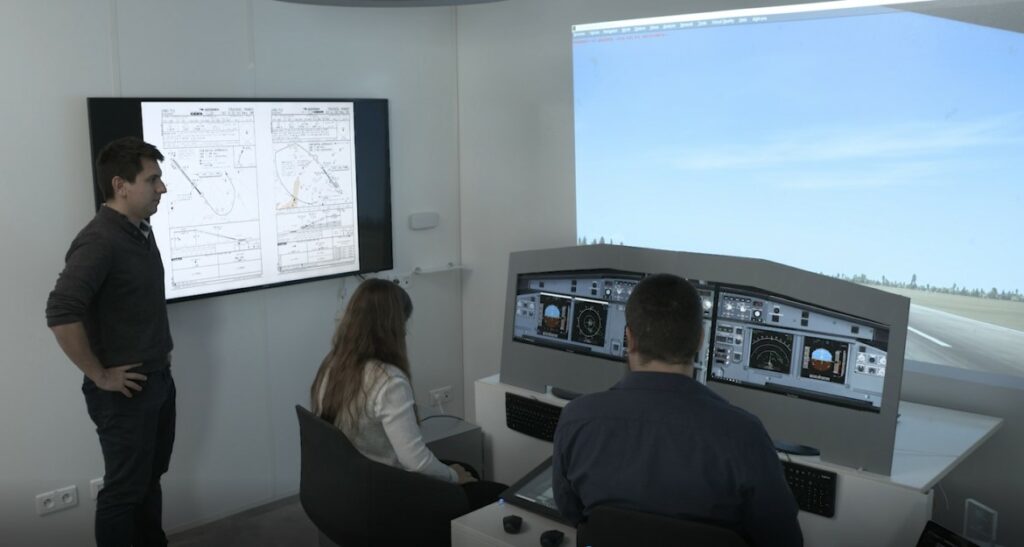
The FAST teams want to share these opportunities with new recruits! Still in its early stages, the platform is the subject of internship topics, and its development prospects are broad, particularly in terms of transport, connectivity, and accessibility. These are challenges that the ALTEN engineers intend to tackle to make FAST the ideal testing resource for any rapid HMI assessment in increasingly agile environments.



